Mercedes-Benz eActros 600 charges with one megawatt
Truck manufacturers are currently testing charging in the megawatt range at full speed. Although the Megawatt Charging System (MCS) standard won’t be fully finalised until 2025, OEMs want to be prepared. Mercedes-Benz Trucks raises the bar with a charging demonstration in the 1,000 kW range. For comparison, the MAN eTruck recently charged at a prototype charging station from ABB with about 700 kilowatts (kW). That is also considered MCS charging in the industry, although strictly speaking, it does not touch the megawatt range.
Mercedes-Benz Trucks hardly comments on the charging process itself. It remains unclear how long the eActros 600 prototype charged or how long it charged with the full 1 MW. There is also no information on the charging hardware. The press photos provided only show the charging station from behind. When asked by electrive, a company spokesperson only said that the series production batteries will be charged from 20 to 80 per cent in around 30 minutes. And that “for competitive reasons”, no further details can be given at present.
However, with regard to the demonstration, the manufacturer announces that its development engineers will now focus on “further trialing of the communications interface between vehicle and charging station, defined as part of MCS standardisation, and ongoing development of prototype components to series maturity.” Series production of the eActros 600 is scheduled to start at the end of 2024. Customers can then initially order vehicles with pre-fitted equipment, thanks to which MCS technology can be retrofitted as soon as it becomes available. From the outset, the eActros 600 will be capable of CCS charging up to 400 kW, which is standard in the industry to date.
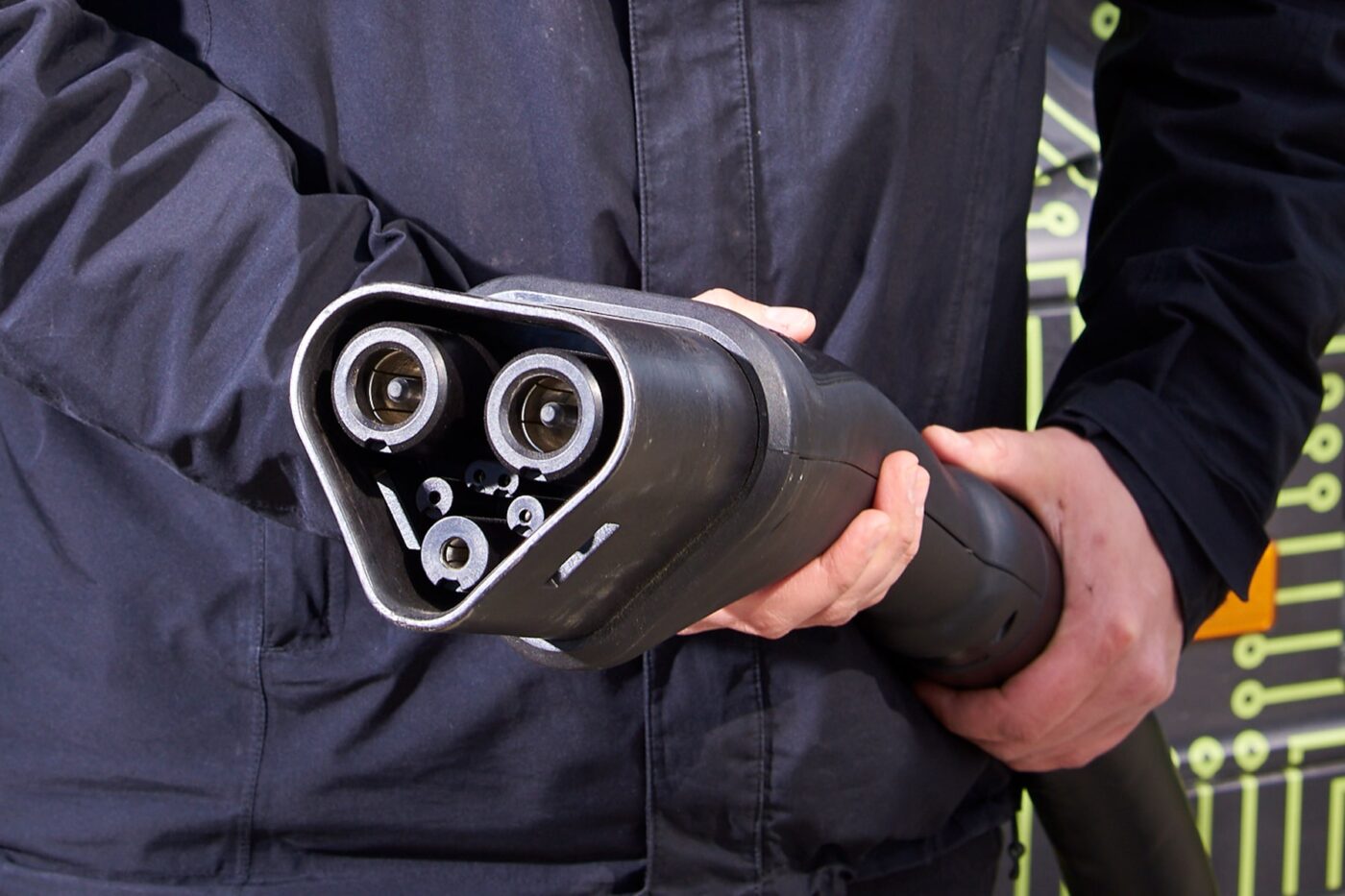
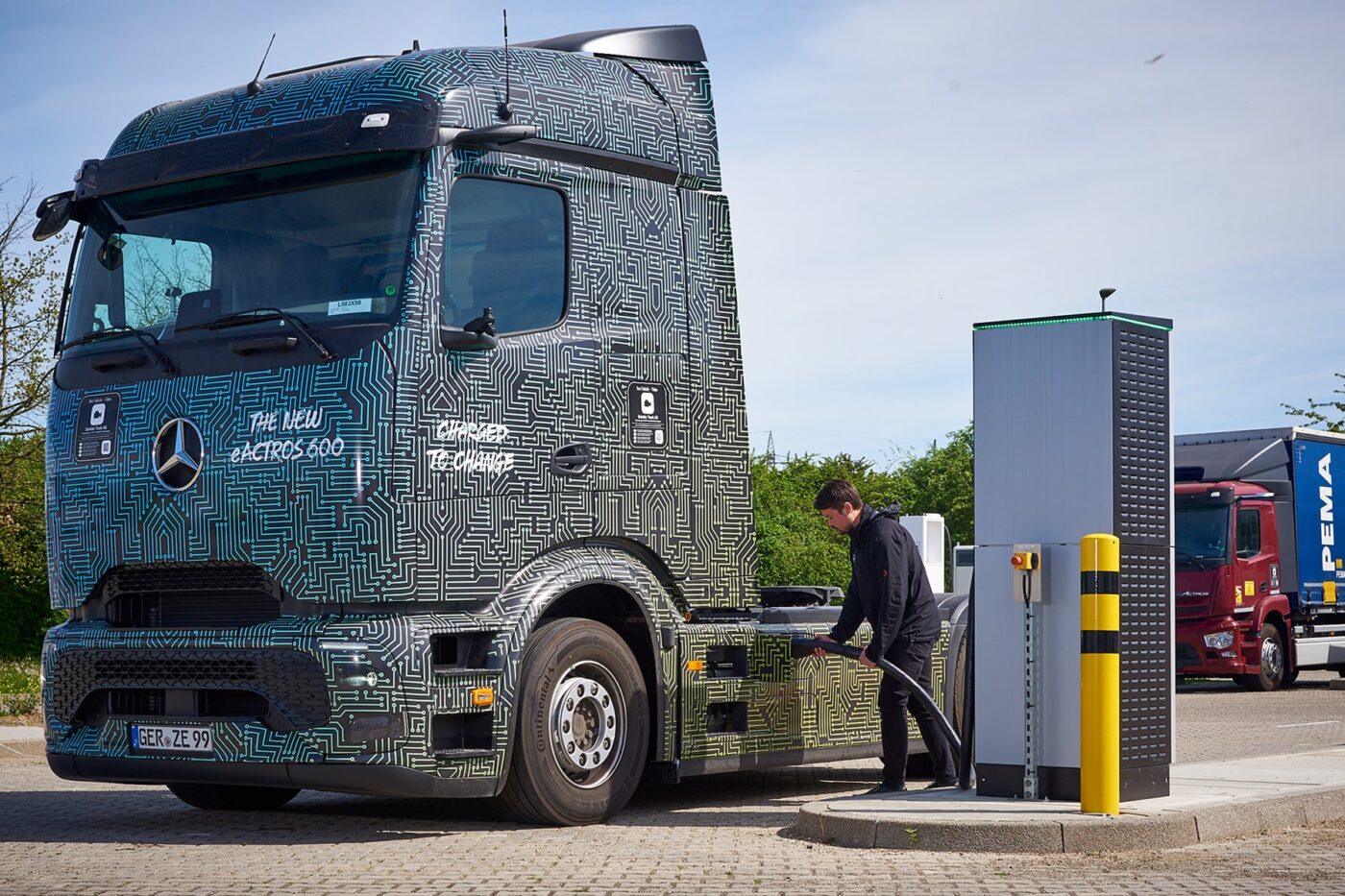
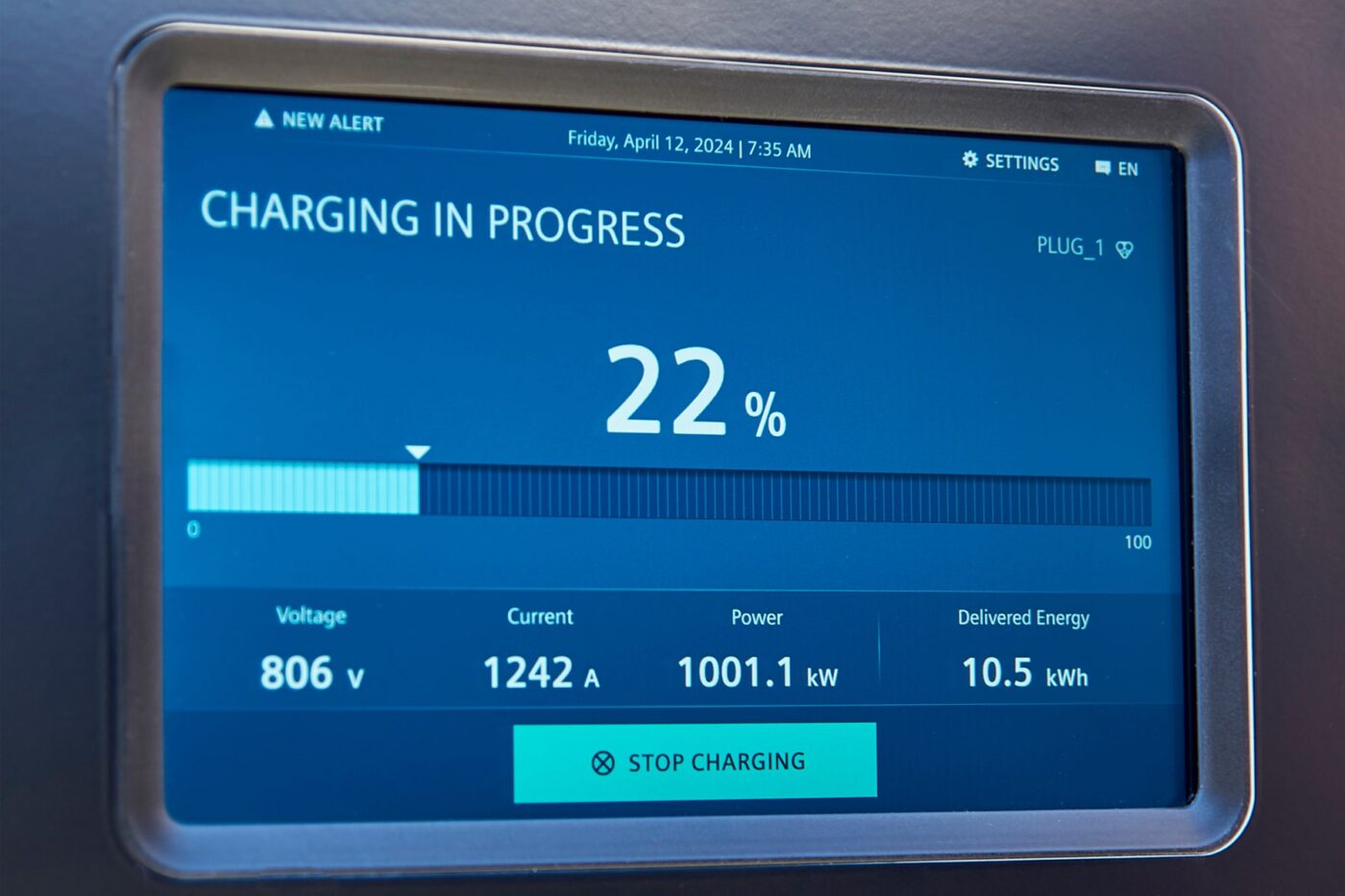
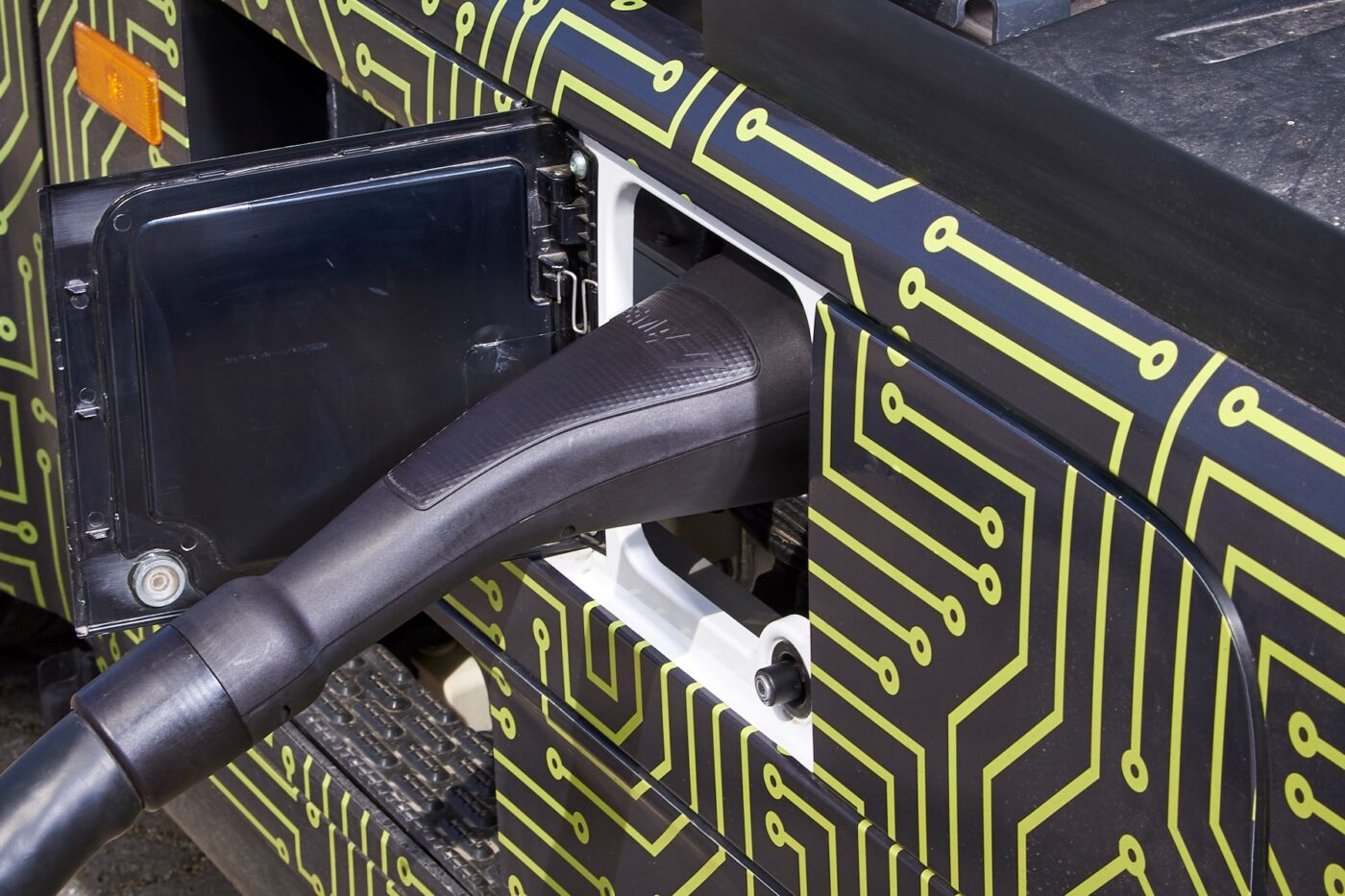
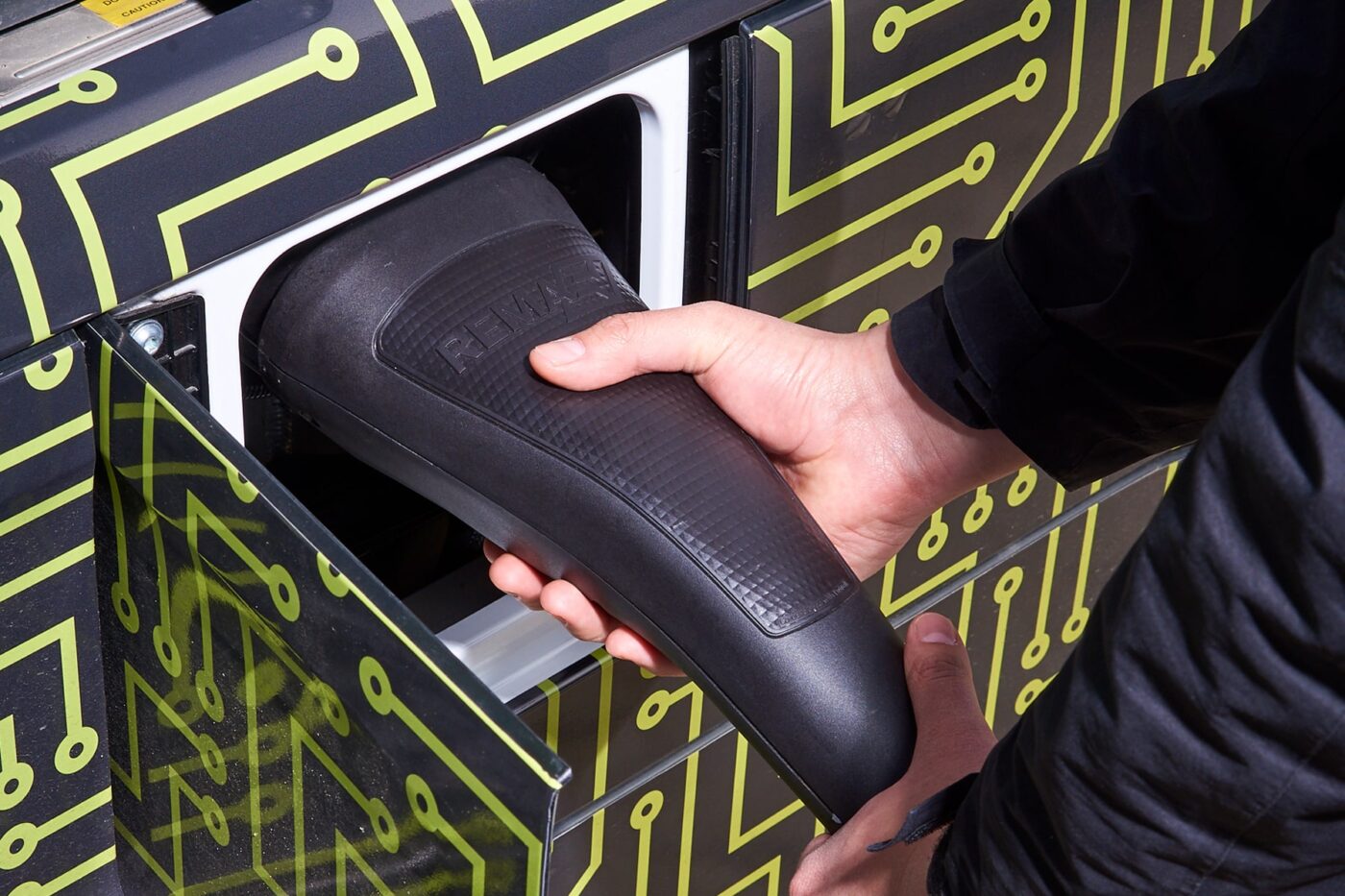
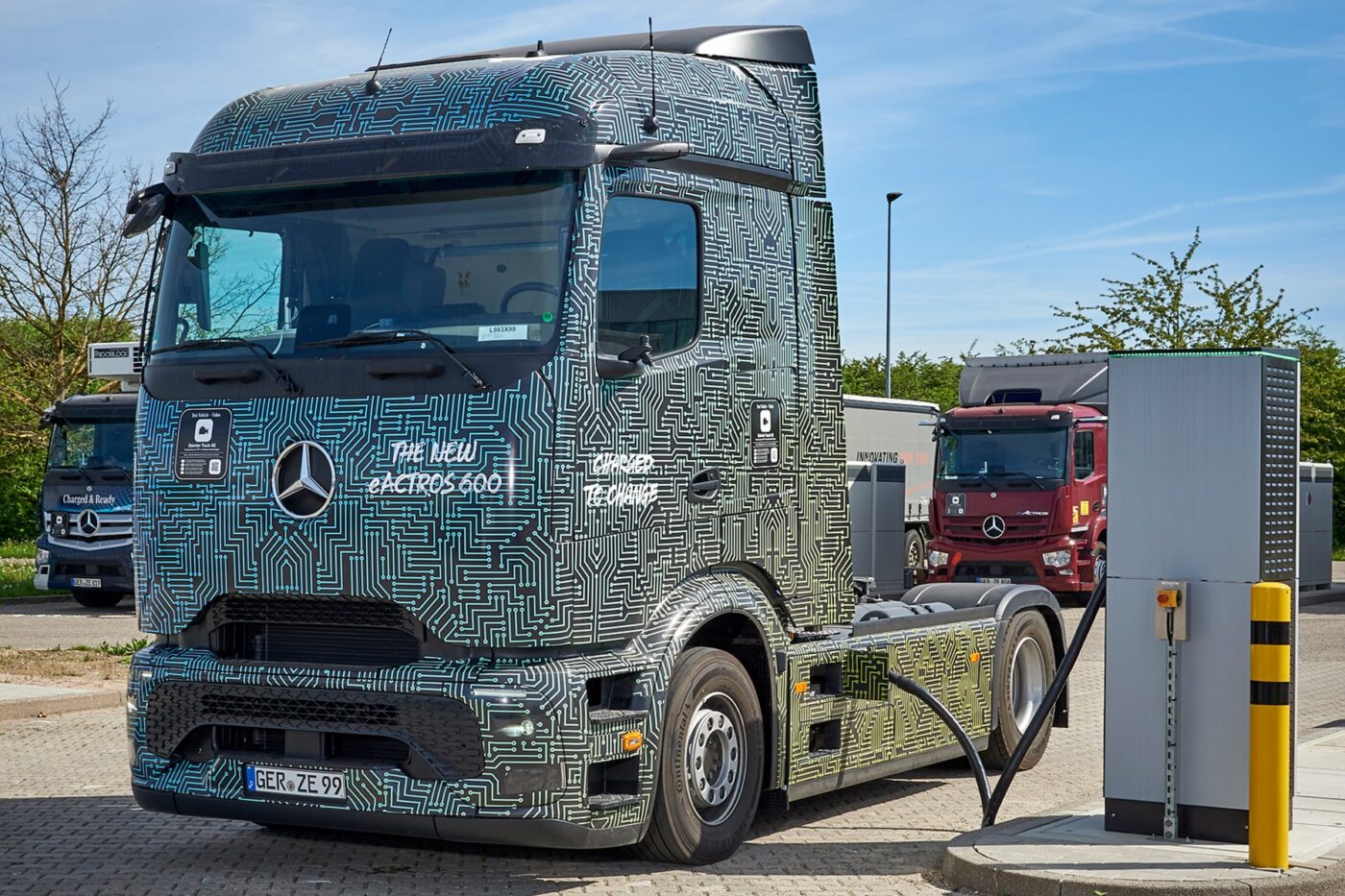
Several manufacturers are currently providing us with the results of initial charging demonstrations. As mentioned, MAN completed a public charging process for its eTruck at an ABB prototype station in Munich in March, charging with more than 700 kilowatts at 1,000 amps. The commercial vehicle manufacturer said it took around half an hour to charge the battery from 10 to 80 per cent. In May, MAN also wants to push into the 1,000 kW range.
Scania is also working with ABB on MCS charging. Trials began almost a year ago, although the partners have not yet provided any details on charging time or charging power. The Megawatt Charging System is basically designed for a charging voltage of up to 1,250 volts and a current of 3,000 amps. That theoretically corresponds to a charging capacity of up to 3.75 megawatts. By comparison, today’s charging stations with the CCS standard can be used by cars and commercial vehicles and offer a maximum charging capacity of 400 kW at 500 amps. Unlike with electric cars, the position of the charging port on the vehicles is standardised for MCS. The charging port will be located on the left-hand side of the vehicle, in an area between two and 4.80 metres behind the bumper. It will be at approximately hip height.
Mercedes-Benz Trucks is fully involved in developing the new, industry-wide MCS charging standard. Rainer Müller-Finkeldei, Head of Mercedes-Benz Trucks Product Engineering, emphasises that the company’s developers have brought the newly defined MCS standard into the vehicle with full charging power in the shortest possible time – “an outstanding feat of engineering.” In his eyes, customers with high requirements in terms of range and vehicle availability will particularly benefit from megawatt charging with 1,000 kilowatts in the future.
“The first successful megawatt charging test with our e-truck is an enormous step forward,” says Peter Ziegler, Head of E-Charging Components at Mercedes-Benz Trucks. “Within the industry, a charging capacity of more than 700 kilowatts is already referred to as MCS charging. We, however, understand the importance of our customers being able to charge the eActros 600 at a full 1,000 kilowatts and thus benefit from short charging times with a long range. We are now working at full speed to take the MCS technology in our eActros 600 to series maturity.”
Mercedes’ electric truck for long-distance transport will have a range of 500 kilometres thanks to its 600 kWh battery capacity (hence the type designation 600) – and, in combination with its charging capabilities, will ensure that customers can “travel significantly more than 1,000 km per day.” In this scenario, electric trucks suitable for long-distance transport will be charged during the driver breaks, which are required by law. According to the manufacturer, even with CCS, the 1,000-km daily range can be achieved.
First eActros 600 roll to customers in Germany
Incidentally, the first customers have recently been able to test drive the Mercedes-Benz eActros 600. The two logistics companies, Contargo and Remondis, have taken delivery of the first examples of the Mercedes-Benz eActros 600. Before the market launch, the two camouflaged long-haul trucks with electric drives are tested in everyday business – further customer deployments with different applications will follow.
Customer trials of new models are not uncommon in the truck industry, and manufacturers are particularly reliant on feedback from everyday use when it comes to electric trucks. Engineers can simulate many scenarios during development and test them themselves. But in the end, nothing beats the experience of customers and their staff, how the vehicle performs, where it runs well and, in the best case, offers an improvement and where it still needs to be readjusted. Daimler Truck already has numerous pre-series vehicles in customer use for the distribution transport model, the eActros 300 and 400, sometimes in various stages of development.
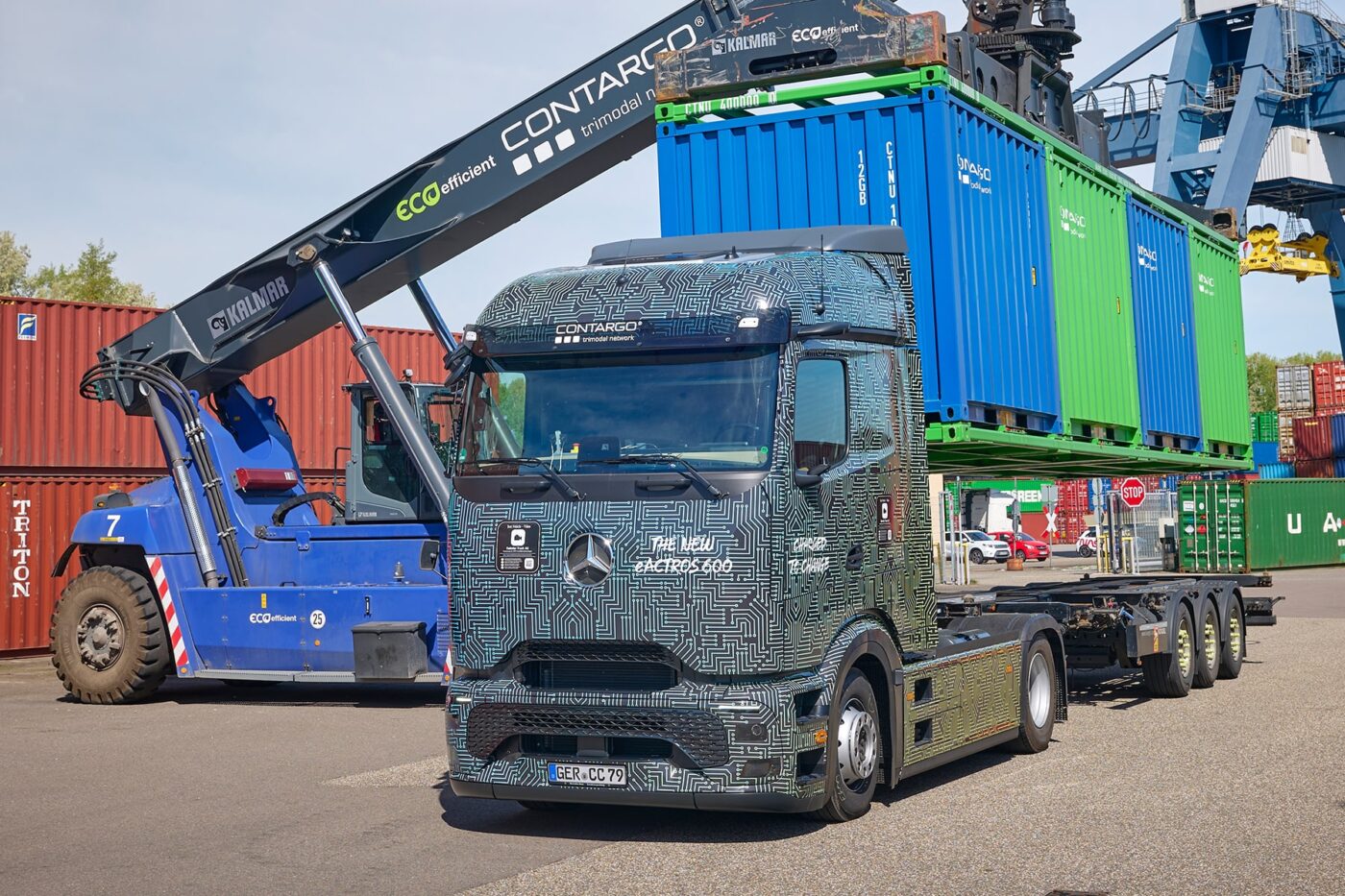
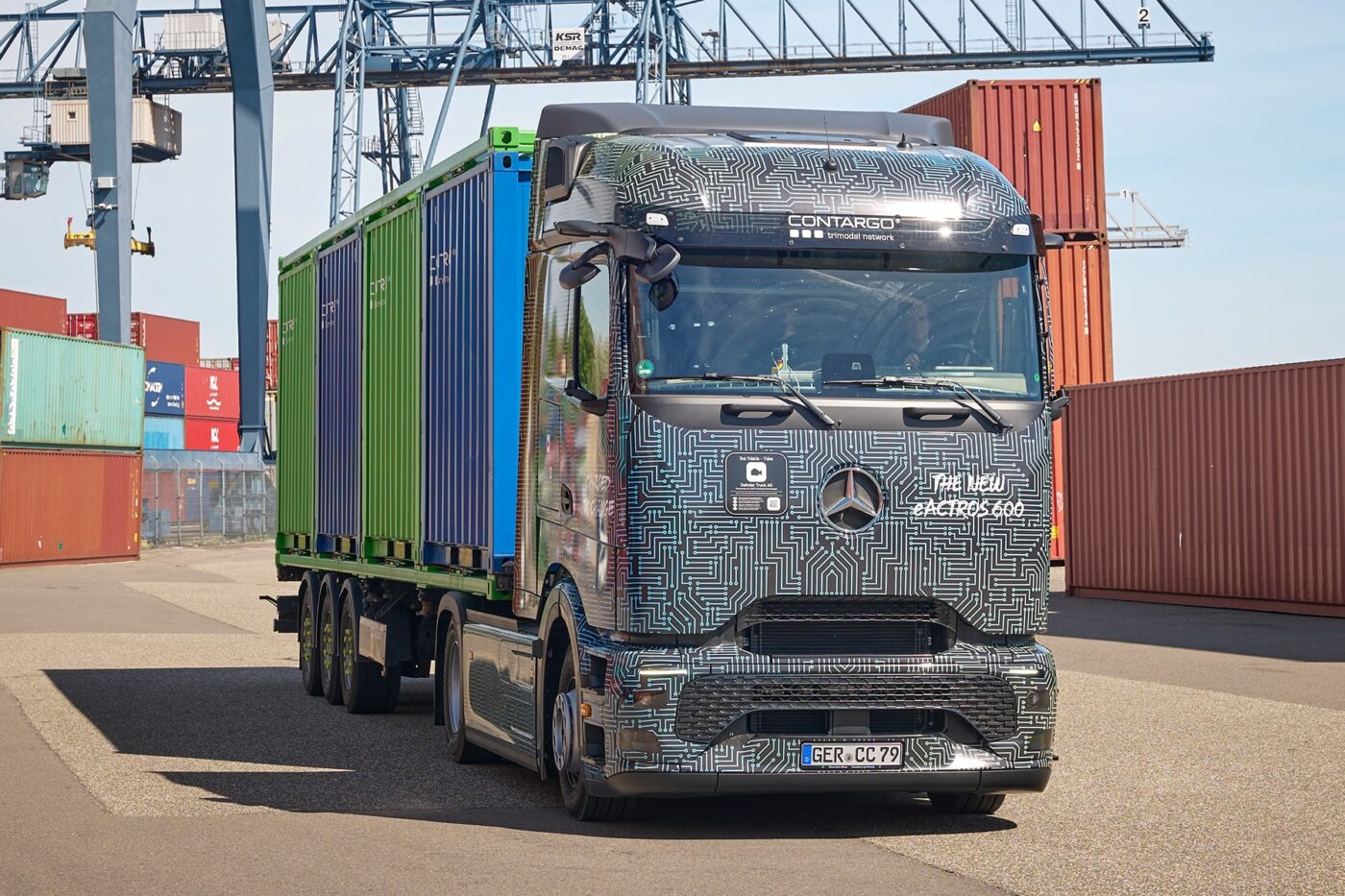
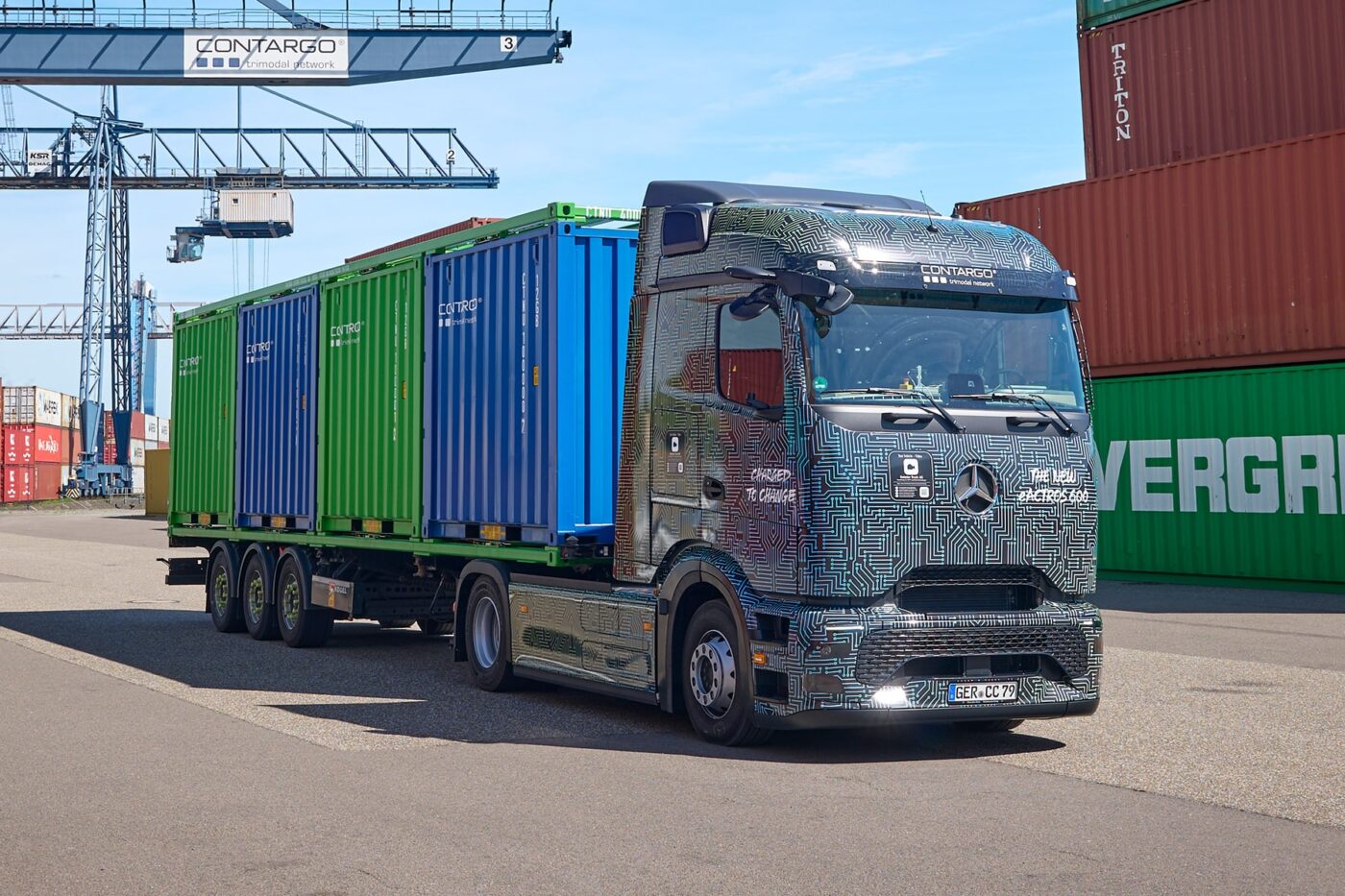
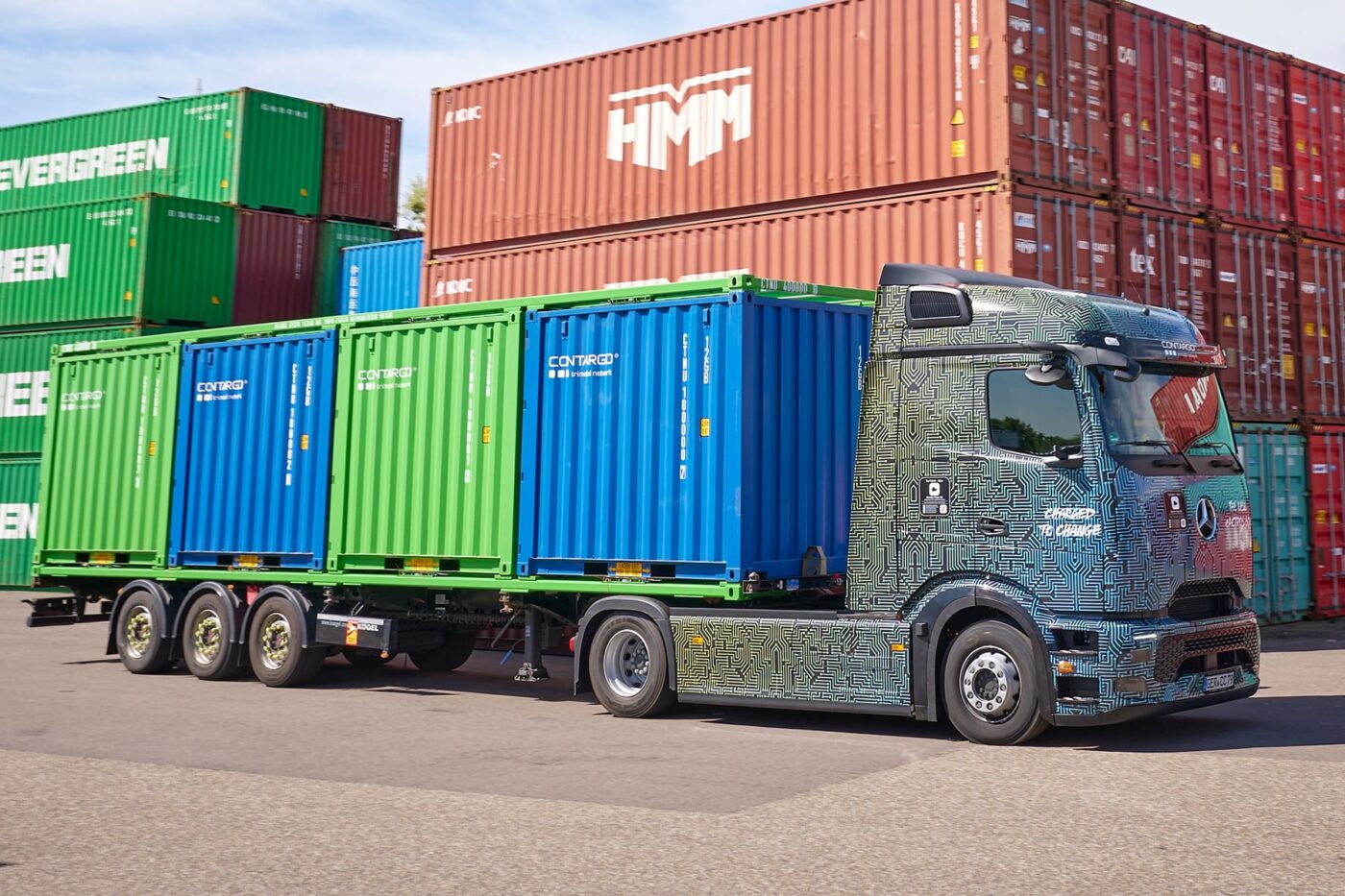
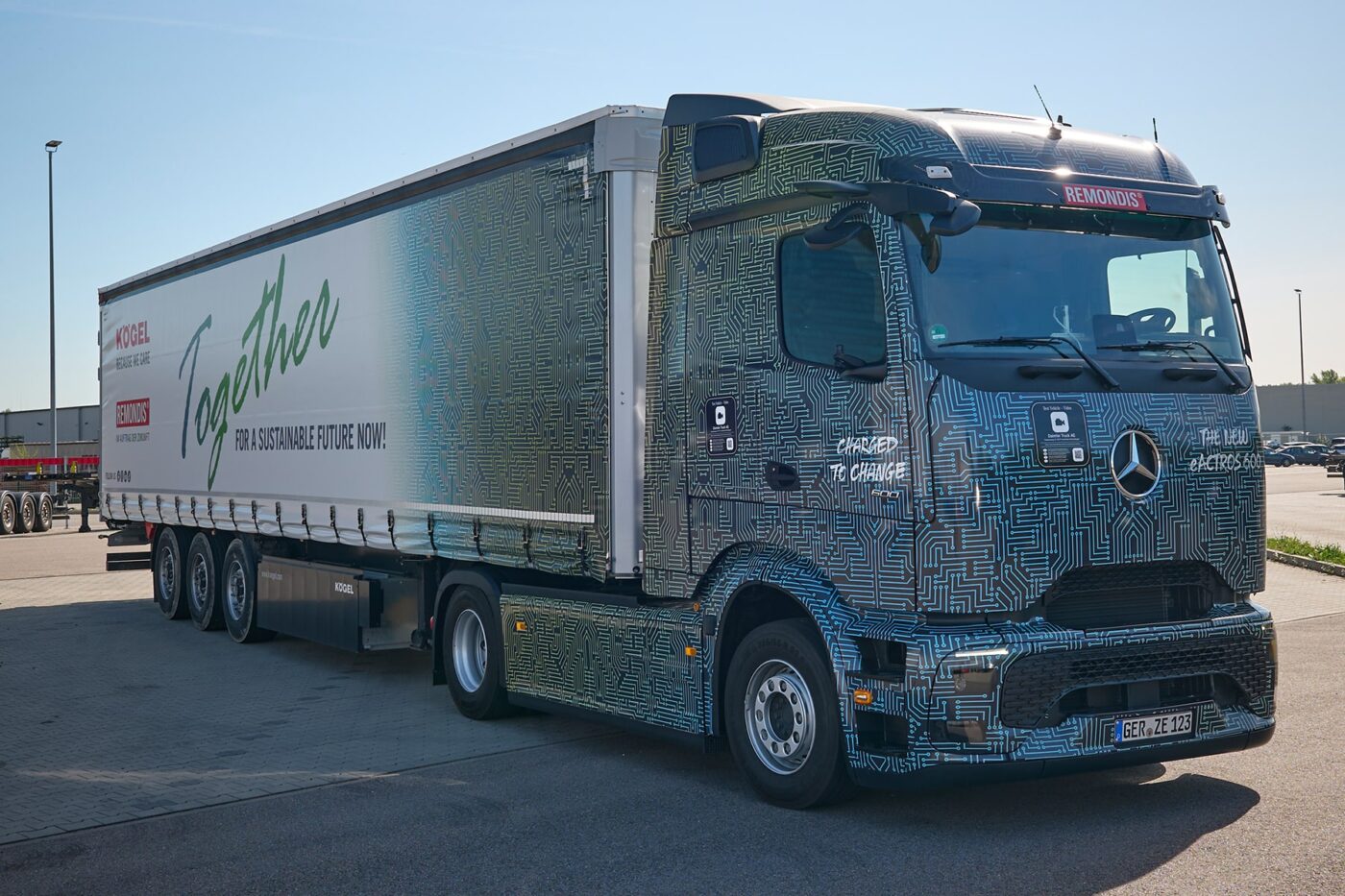

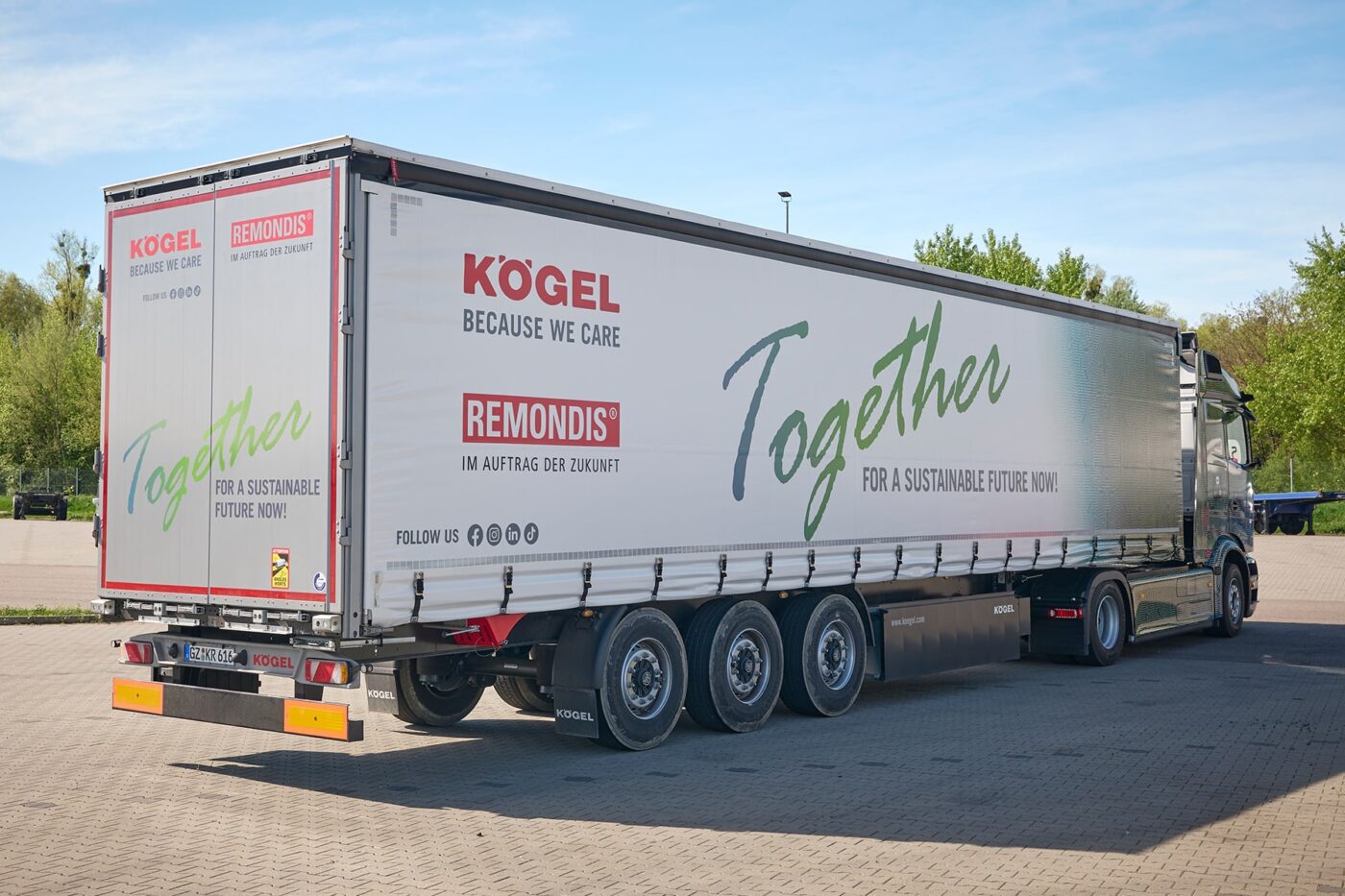
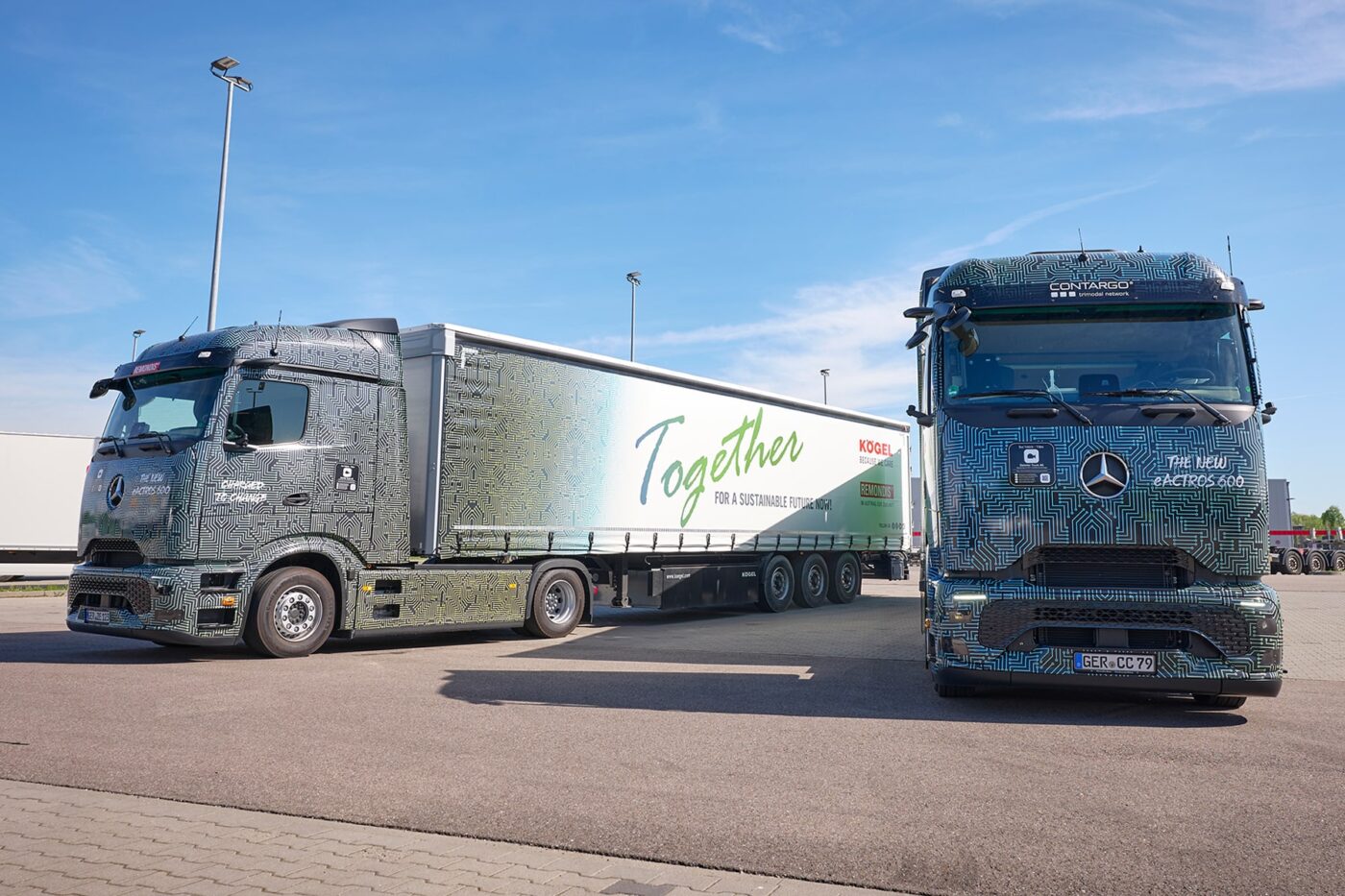
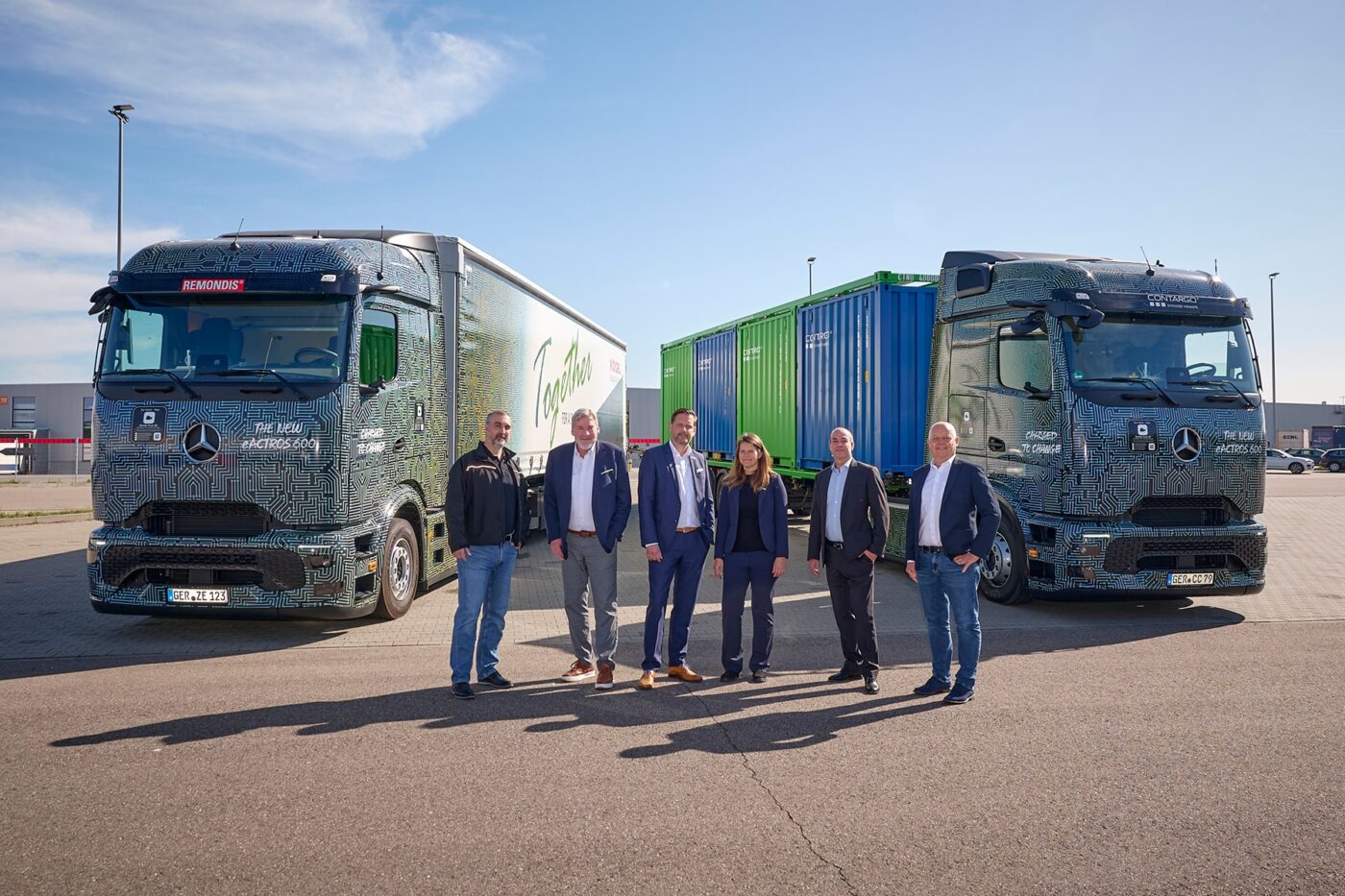
“The testing of e-trucks with customers before the start of production has proven very successful,” says Stina Fagerman, Head of Marketing, Sales and Services at Mercedes-Benz Trucks. “This is why we are also relying on practical tests for the eActros 600. We are very pleased that Contargo and Remondis will be the first customers to test the eActros 600 in real operation.”
Both launch customers are part of the globally active Rethmann Group – and have already ordered series models of the eActros 600. In the case of Contargo, the eActros 600 will not be used for long-distance transport but in a scenario with daily mileages of more than 800 kilometres. The vehicle will travel between the port in Wörth am Rhein and various loading and unloading points over several months. As a first step, the vehicle will be charged at a rapid charging station at the Contargo terminal in Karlsruhe, Germany. Contargo is planning to set up its own charging infrastructure at its depot in the near future. According to Contargo, it is currently building Germany’s largest private charging network for heavy-duty electric trucks, with 90 charging points at 18 locations.
The second vehicle will test electric long-distance transport near the city of Cologne. It is part of the project Hol, which stands for”High-performance charging in long-distance lorry transport”. The goal is to set up, operate and scientifically monitor a high-performance charging infrastructure for battery-electric long-distance transport. The test vehicle for Remondis will primarily be used to transport recycled raw materials and is equipped with a Kögel semi-trailer specially produced for the trials.
The delivery of the first two test vehicles does not mention which other applications Daimler Truck intends to map in the test fleet of the eActros 600 – a total fleet of around 50 prototypes is currently being built, some of which will be sent to the first customers for practical testing in a next step. It was announced in 2022 that Amazon and Rhenus will also be test customers for the vehicle.
daimlertruck.com (MCS), daimlertruck.com (customer testing)


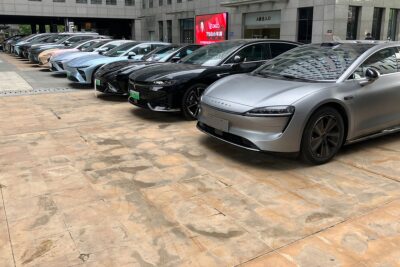
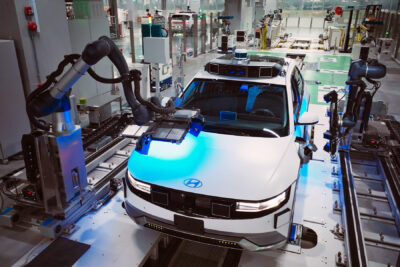
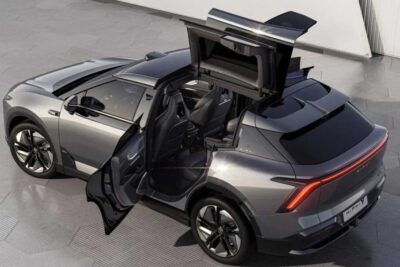
4 Comments